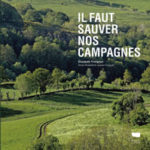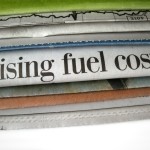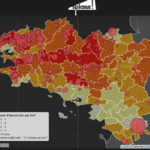The April 14, 2008 issue of Newsweek (on newsstands Monday, April 7), "Who's the Greenest of Them All?" finds out where the presidential candidates stand on the environment and what's keeping environmental groups from endorsing one of them. The cover package also includes the top 10 fixes for the planet; Dan Gross on what Iceland can teach the world and how Major League Baseball is going green. Plus: the popularity of parent coaching and Julie Andrews on her new memoir. (PRNewsFoto/NEWSWEEK)
NEW YORK, NY UNITED STATES
Growing Public Concern Over Environment Will Put Pressure on Next President to Rethink America's Policy on Global Warming
Environmental Groups Still Undecided on Which Candidate has Strongest Ideas on Tackling Green Issues
NEW YORK, April, 6, 2008 /PRNewswire/ -- If the United States wants to
have a voice in setting the new course of energy and technological change
in 2009, when a new international treaty on global warming is negotiated,
replacing the expiring Kyoto Protocol, it will need a leader who takes the
issue of climate change very seriously. Luckily, with John McCain, Barack
Obama and Hillary Clinton in the race for the White House, it likely will.
In the April 14 Newsweek cover package, "Who's the Greenest of Them All?"
(on newsstands Monday, April 7), which is also the second annual project on
"Environment & Leadership," Senior Editor Jerry Adler reports on where the
three candidates stand on the environment and why some environmental
advocacy groups are having a tough time deciding whom to endorse.
(Photo: http://www.newscom.com/cgi-bin/prnh/20080406/NYSU003 )
The environment has emerged as a leading issue in this election cycle;
last year more than three voters in 10 said they would take a candidate's
green credentials into account, according to pollster John Zogby, up from
just 11 percent in 2005. "It was clear starting all the way back in Iowa
and New Hampshire that this campaign would be much more about the
environment," says Dave Willett, a spokesman for the Sierra Club.
The League of Conservation Voters, which influences mainstream
environmental groups when it comes to national politics, hasn't chosen a
candidate for 2008. In its ranking of senators based on their positions on
15 votes in 2007 (including farm subsidies, gas mileage and biofuel
standards), Obama and Clinton are considered strong environmental
candidates. "It's clear from both of their voting records in the Senate
that they're committed to supporting energy efficiency and slowing global
warming," says league spokesman Jay Natoli. "In fact, they're too similar
to say at this point that one is better than the other. [As for] McCain,
his plan isn't as strong, but he has sponsored and supported legislation
that shows he cares about the environment. But at this point, we're not
ready to endorse." McCain's 2007 league rating is zero, putting him in the
company of eight other Republicans, including the global-warming denier
James Inhofe. But that's because McCain missed all 15 key votes; the league
counts a missed vote the same as a vote against its position. His lifetime
LCV rating, however, is 26 percent, compared with an average of 16 percent
for all Republicans. As recently as 2004, when his rating for the 108th
Congress reached 56 percent, the league endorsed him for re-election to the
Senate.
McCain is an appealing figure to some environmentalists, and viewed as
the most acceptable of the major GOP contenders, because he is a Republican
from a Western state, whose occasional departures from Republican orthodoxy
seem to be grounded in genuine conviction. "It's unusual to have a
Republican candidate who openly disagrees with the Bush administration on
the need for capping carbon emissions," says Dan Kammen, an authority on
energy policy at UC Berkeley who has advised all three leading candidates
and is now associated with the Obama campaign. In 2003, McCain introduced,
with Joe Lieberman of Connecticut, the first-ever bill to regulate carbon
emissions in the United States. It never passed, but it was a landmark bill
for its time. McCain has also sided with environmentalists on
fuel-efficiency standards and the talismanic issue of protecting the Arctic
National Wildlife Refuge. "We're waiting for [McCain] to further define his
plan before we make any judgment about him," says Nick Berning, a spokesman
for Friends of the Earth. "He could still surprise folks."
Also in the cover Package:
-- Editor-At-Large Evan Thomas and Washington Correspondent Pat Wingert
report that to truly tackle the greenhouse effect, it will require the
one thing from voters that few politicians dare to ask for and fewer
achieve: massive public sacrifice. Accomplishing this would require the
rhetoric of Barack Obama, the grit of Hillary Clinton and the courage
of John McCain -- all combined in one leader.
http://www.newsweek.com/id/130629
-- Reporter Anne Underwood offers 10 fixes for the planet, based on ideas
from scientists, inventors and entrepreneurs. The ideas include using
LED light bulbs, driving 300-mpg cars, using enormous kites to help
pull ships and having manufacturers produce products that are fully
recyclable.
http://www.newsweek.com/id/130625
-- Senior Editor and Columnist Daniel Gross writes that the United States,
and other developed nations, "can learn some valuable lessons from
Iceland about what happens when a society commits to the systematic
development of renewable energy."
http://www.newsweek.com/id/130626
-- National Correspondent Martha Brant reports on a new breed of M.B.A.
students who think it's possible to make money by going green. For
some, studying sustainable business practices just gives them a
competitive edge. For others, it's a fresh way of thinking about
business. These eco-M.B.A.s talk about the "triple bottom line"-people,
planet, profit.
http://www.newsweek.com/id/130591
-- Editorial Assistant Matthew Philips reports on how Natural Resources
Defense Council's Allen Hershkowitz's efforts lobbying Major League
Baseball's teams and their facilities to go green have started to pay
off. Last month the NRDC rolled out a team-specific greening-advisory
system for the NBA, MLB and NHL, designed to help clubs implement
ecofriendly practices by introducing them to local companies familiar
with composting and energy audits.
http://www.newsweek.com/id/130592
-- General Editor Anna Kuchment reports on the ecofriendly looks worn by
models during New York's fashion week. Future-Fashion, a show organized
by the New York-based nonprofit Earth Pledge, inspired many top
designers to work with sustainable fabrics such as sasawashi, peace
silk and hemp. Several have since pledged to incorporate organic
fabrics into their lines.
http://www.newsweek.com/id/130627
-- Senior Editor Sharon Begley writes about the errors that have plagued
efforts to green the planet, from not recycling properly, to the
pitfalls of hybrid cars to, "perhaps the greatest folly, ... the push
for ethanol to replace gasoline," she writes.
http://www.newsweek.com/id/130628
(Read cover story at http://www.Newsweek.com)
Cover: http://www.newsweek.com/id/130624














